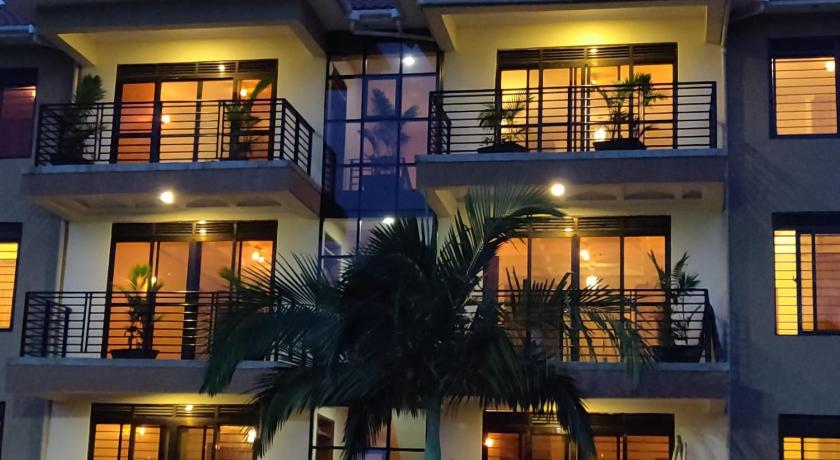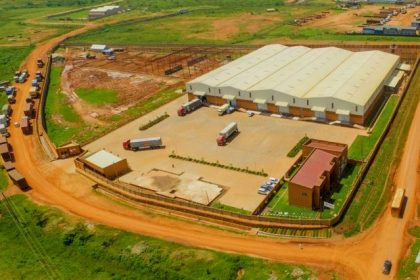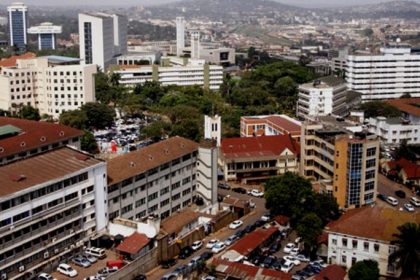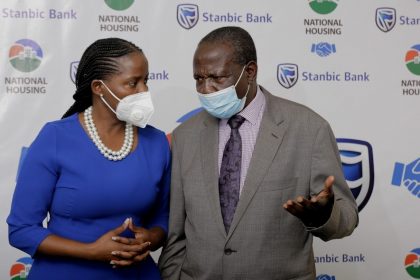Emerging oil industry helps to revive Kampala high-end residential market
 Knight Frank Uganda registered a 12% year-on-year increase in occupancy of prime residential
accommodation in H2 2021 as compared to H2 2020 for the suburbs of Kololo, Nakasero, Bukoto,
Bugolobi and Naguru.
Knight Frank Uganda registered a 12% year-on-year increase in occupancy of prime residential
accommodation in H2 2021 as compared to H2 2020 for the suburbs of Kololo, Nakasero, Bukoto,
Bugolobi and Naguru.
Knight Frank Uganda registered a 12 pc year-on-year increase in occupancy of prime residential accommodation in the first half of (H2) 2021 as compared to H2 2020 for the suburbs of Kololo, Nakasero, Bukoto, Bugolobi and Naguru.
According to its latest market performance review, key among the drivers for this increase, is the return of expatriates to the country after travel restrictions due to Covid-19 were lifted, and increased demand from individuals in the oil and gas affiliated fields after the signing of key oil agreements in April 2021.
This resulted in a gradual increase in the rent for two and three bedroom apartments within the prime locations in Kampala and a general improvement in occupancies.
The retail property market continued to show subdued trade due to the second wave and the nationwide lockdown. A general improvement in activity is expected, albeit slowly, hinged on, most of the population getting vaccinated, and all existing Covid-19 restrictions lifted as proposed. H2 2021 saw telecommunications company, Africell wind up their operations in Uganda, and Shoprite, the industry food retailer leader, exit the Ugandan market on the back of a sale to Majid al Futtaim trading as Carrefour. By year end, all stores had been taken over and trading by the new brand, save for the store at Clock Tower on Ben Kiwanuka Road which is due to undergo major refurbishment.
Revised GDP estimates from Uganda Bureau of Statistics (UBOS) indicate that the economy grew by 3.4% in FY 2020/21, as compared to the 3.0% growth registered in FY 2019/20. In fact, various real sector indicators such as the Composite Index of Economic Activity and the Business Tendency Indicator showed an uptick in economic activity and positive sentiments about the business environment.
Office leasing and investment activity has continued to improve steadily, with a noticeable increase in activity recorded in H2 2021 compared to the same period in 2020 on the back of increasing movement in the oil and gas sector, following the signing of key oil agreements in April 2021. Knight Frank commercial agency noted that increased demand for office space was driven largely by oil affiliated companies, financial institutions, audit and accounting firms, consultancies, medical organizations, insurance companies, government bodies and NGOs.
With the growth of industrial parks in different parts of the country, increased activity in industrial areas, including Namanve, has been linked to incentive schemes put in place to encourage industrialisation. These include among others, tax exemptions, deductible allowances, ease of access to land, duty free raw materials, etc. In Namanve, increased activity over the years has resulted in appreciation of land values for private owned land by approximately 25% over the past five years.
According to the December 2021 State of the Economy Report released by Bank of Uganda, the economy is projected to grow at a rate between 3.5-3.8 % in the FY 2021/22 and 5.5-6.0% in FY 2022/23, before increasing to 6.5-7.5 % in the medium-term (2 to 3-years ahead). The growth will be hinged on an increase in private consumption, robust growth in external demand, a gradual return of activity in the tourism sector, and international and domestic private investment in the oil sector.

 Knight Frank reports sustained demand for industrial space
Knight Frank reports sustained demand for industrial space
 Upturn in Kampala’s residential housing sector as economy recovers
Upturn in Kampala’s residential housing sector as economy recovers
 Uganda’s proposed tax changes may dampen investor confidence
Uganda’s proposed tax changes may dampen investor confidence
 Kampala metropolitan real estate market recovers from lows after pandemic
Kampala metropolitan real estate market recovers from lows after pandemic
 Stanbic Bank introduces insurance package to protect schools from risks
Stanbic Bank introduces insurance package to protect schools from risks
 Stanbic subsidiaries in tripartite pact with National Housing company to develop real estate
Stanbic subsidiaries in tripartite pact with National Housing company to develop real estate
